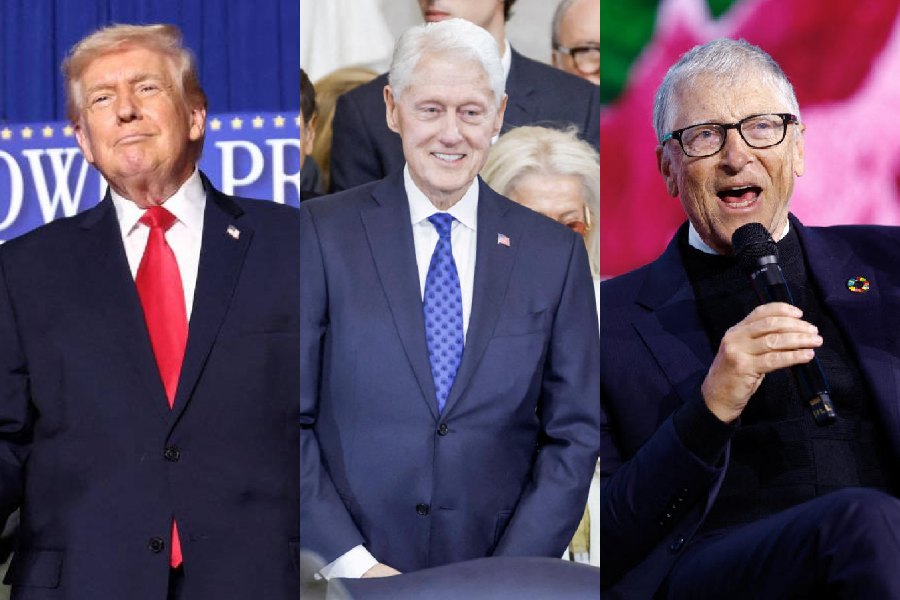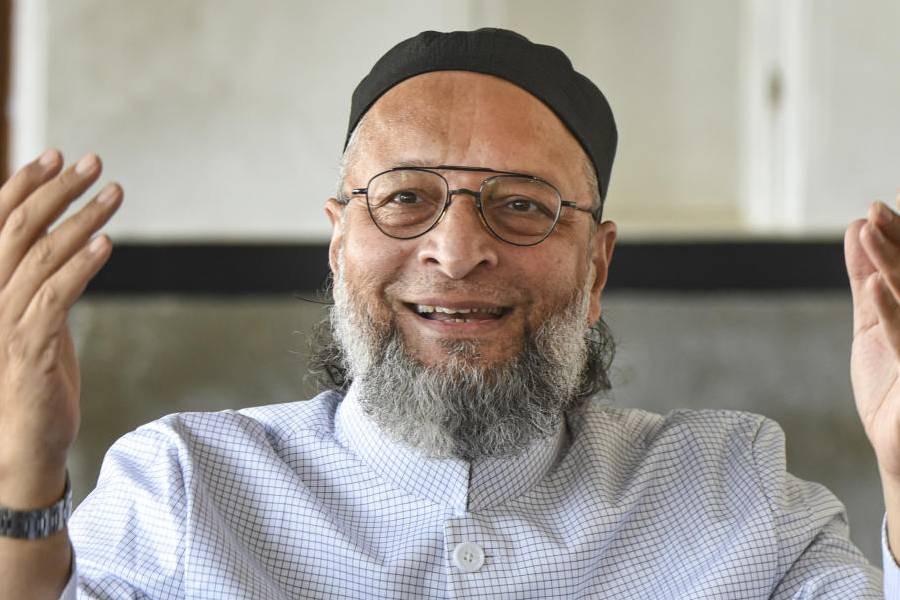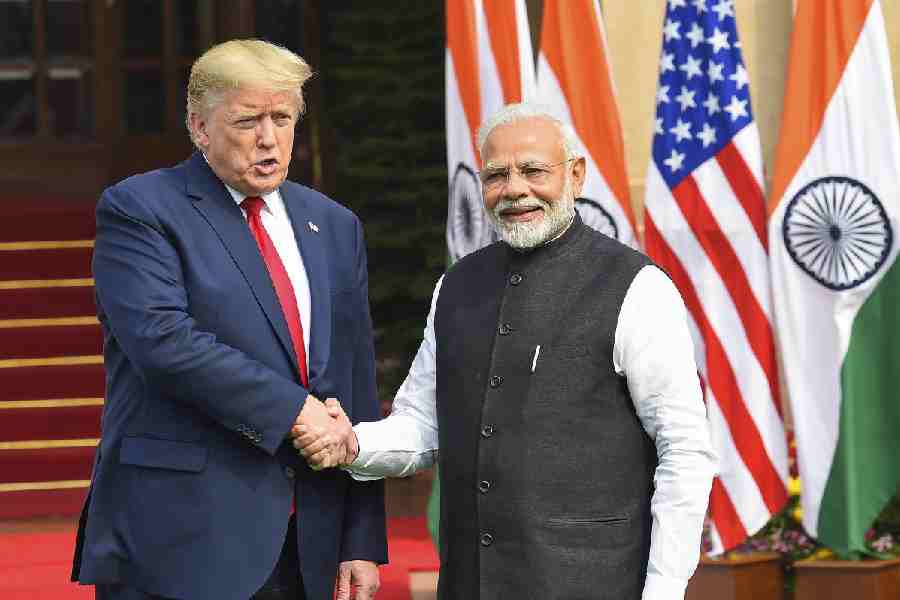 |
| Hagrama Mohilary interacts with people in violence-hit Kokrajhar. (PTI) |
For the rulers of Assam, lives beyond Dispur are dispensable. Just because the Bodoland Peoples’ Front (BPF) led by former militant Hagrama Mohilary is a part of the Congress-headed coalition in Assam, it seems like the BPF is given a carte blanche to do what it wants to within the Bodoland Territorial Council areas. This time, over 40 members of a community, some of them children, were killed in cold blood. The bodies of many are yet to be traced. Many petrified victims jumped into the river to avoid the bullets and drowned as a result. There can be no worse human rights violation than this! In a case of too little too late, it seems Dispur has suddenly woken up to the fact that Bodoland is a hub of illegal weapons and AKs of every make. Militancy in the Northeast has always morphed into a deadly brew. Militant outfits split and fratricides are common. Friction among factions has caused many deaths and weapons only proliferate. The Ranjan Daimary-led National Democratic Front of Boroland (NDFB) has split. While Daimary’s faction is in talks with the government, the other, led by I.K. Songbijit, is on a vicious killing spree.
What makes matters worse is that even forest guards used their weapons to kill human beings this time. How can any government preside over such a lawless regime? The former parliamentary secretary in charge of home department, B.K. Borah, says he was informed that after the 2012 riots in Kokrajhar, there were over 5,000 unlicensed firearms floating around in the BTAD area. Hence, it would be wrong to say that the state is unaware that these arms are regularly used to intimidate political rivals and for ethnic cleansing. Even in 2012 when violence erupted in Kokrajhar and Chirang, there were already enough signs of lawlessness and senseless killings. Necessary precaution should have been taken at the first hint of trouble but it was not done in 2012 and it was not this time around. After all, we are talking of a nowhere people with no guarantees from the state that their lives would be protected. And who is to say who is an illegal migrant and who has been born in India, Assam, to be precise? Yet, there is a section of people in Assam who continue to be labelled illegal immigrants and who bear the brunt of every ethnic cleansing frenzy in the Bodoland Territorial Areas District (BTAD).
Much has been written on the problem of ethnic homelands where the ethnic group is a minority in that circumscribed homeland. The Bodos cannot expect to reduce the non-Bodos to a minority when they make up only 32 per cent of the population of BTAD.
In his book, Between Identity and Location: The Cultural Politics of Theory, R. Radhakrishnan says: “The constituency of the ethnic occupies quite literally a preposterous space where it has to actualise, enfranchise, and empower its own identity and co-extensively engage in the deconstruction of the very logic of identity and its binary and exclusionary politics. Failure to achieve this doubleness can only result in the formation of ethnicity as yet another identical and hegemonic structure.” The only way that one can envisage any kind of a settlement in Bodoland is to imagine a model that is politically inclusive and socially cohesive. At the moment both are missing. The non-Bodos feel politically alienated from the BTC. There is palpable social tension and suspicion which prevents any kind of collaborative action in the “nation-building” venture in Bodoland. The proposed Bodoland state is but part of the Indian nation-state as it were. Here, I would not like to get into the dichotomies and intellectual sparring on the nation-state concept and its problematic juxtapositions. I am taking the nation state as a whole of which Bodoland is an integral part. Unless the Bodos give up exclusionary politics and engage their co-residents in Bodoland in a mutually agreed political settlement, bloodshed and violence will continue to haunt this region of Assam.
It is a different matter that the BTC which wields considerable financial and executive clout has thus far failed to meet the aspirations of the Bodo people; forget about so-called “others” whose views do not seem to matter and who live on the fringes of the political pyramid.
Now we are told that there might be more bloodshed and violence after May 16 when the results are declared and BPF candidate Chandan Brahma bites the dust. This is a very scary prospect for those who might once again become targets of militant violence. BPF leaders have already expressed their resentment against the non-Bodos in BTAD who are believed to have voted for Naba Kumar Sarania — a former Ulfa militant. The problem of exclusionary politics is that those who feel dispossessed and alienated from the system tend to look for “saviours.” Those who have been at the receiving end of the meticulously planned violence in the BTAD know they cannot rely on ambiguous assurances from the BPF. They have experienced enough pain and anguish to know that such assurances of security within the BTAD have failed the litmus test. Time and again they have been let down by the state law and order machinery. Whom do they trust? Even the Bodo intellectuals have chosen to maintain a discreet silence on this issue. In fact, one is yet to hear a coherent statement from any of them about the recent violence.
U.G. Brahma of the Bodoland Peoples’ Progressive Front (BPPF), who is also one of the Lok Sabha candidates this time and who is himself under threat from former militants, had made a plea much before the elections in Kokrajhar, that security needed to be beefed up. He had called the attention of the Election Commission to a probable security breach. If Dispur had taken cognisance of this warning, the killings could have been prevented. But the dispensations at Dispur and in Kokrajhar are comrades-in-arms. As always Dispur ignored Brahma’s warning of possible violence because Brahma is Hagrama’s bete noire. Such is the poisonous politics of Bodoland.
One is amused to hear chief minister Tarun Gogoi say that the Congress would break ties with the BPF if it is proved that the party was involved in the recent killings. What other evidence does Gogoi need? And who will provide him that evidence? Was he unaware about the stockpile of arms in Bodoland? Who were they going to be used against? Hence, the announcement about seizure of illegal arms is empty rhetoric.
Does the government really have an inventory of the number of guns and bombs in the hands of former militants and of those who are still abiding by the law of the jungle like the Songbijit faction of the NDFB? Would it be possible to recover those arms without a door to door raid? Hence, the arms seizure talk is just another ruse to tide off the present crises and deflect attention from the issue at hand. Bodoland is a tinder box.
Unless the government at the Centre has a definite policy on handling the homeland demands in the Northeast and a coherent policy of dealing with militancy, we will continue to witness similar killings in the future.
(The writer can be contacted at patricia17@rediffmail.com)











